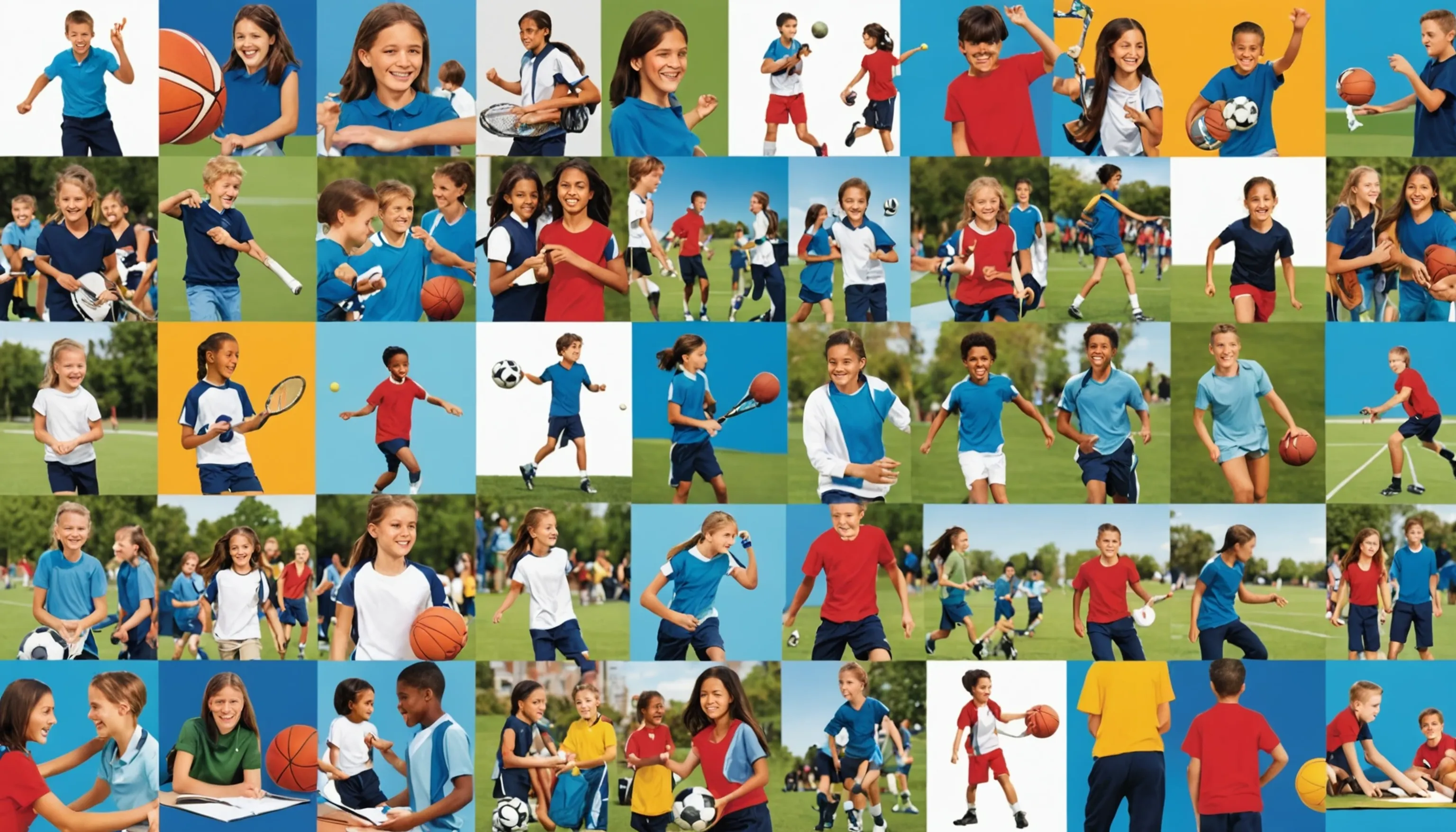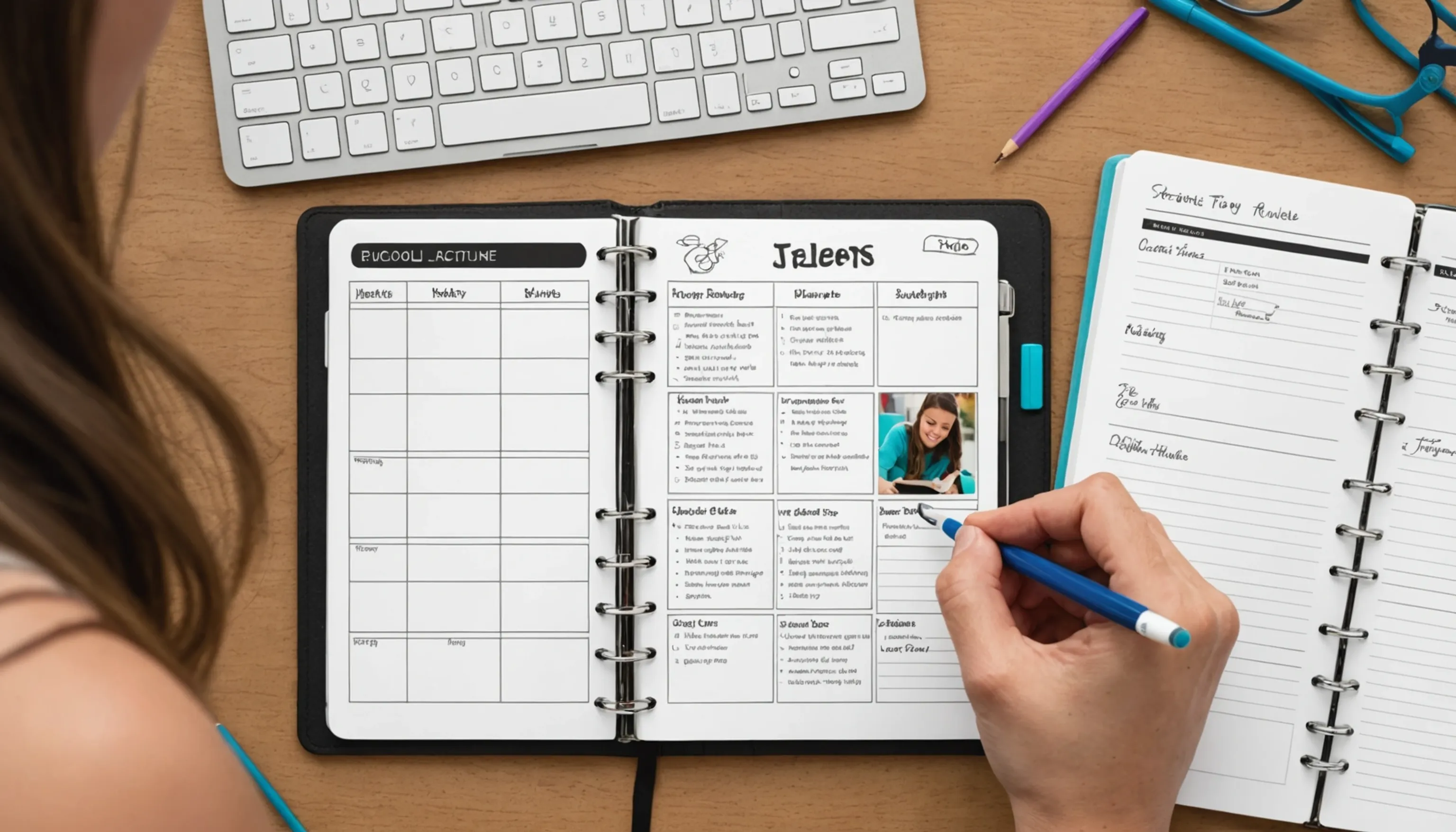After School Activities for Teens
 HvWHenry van Wagenberg
HvWHenry van Wagenberg
Understanding After School Activities for Teens
After school activities are programs or events that take place after the regular school hours, providing teens with opportunities to engage in various pursuits. These activities can include sports, clubs, arts, volunteer work, and academic enrichment programs. They play a crucial role in a teenager's development, helping them acquire new skills, build friendships, and explore interests outside of the classroom.
Participation in after school activities can enhance a teen's self-esteem and foster a sense of belonging, contributing positively to their overall well-being.
Benefits of After School Activities
After school activities offer a myriad of benefits for teenagers, contributing significantly to their personal and social development. Here are some of the key advantages:
- Skill Development: Engaging in various activities allows teens to develop new skills, whether they are athletic, artistic, or academic. This can enhance their resumes and prepare them for future opportunities.
- Social Interaction: These activities provide a platform for teens to meet peers with similar interests, fostering friendships and social networks. This can be especially beneficial for those who may struggle to connect in a traditional school setting.
- Time Management: Balancing schoolwork with after school commitments teaches teens valuable time management skills. They learn to prioritize tasks and manage their schedules effectively.
- Increased Confidence: Participation in after school activities can boost self-esteem and confidence. As teens master new skills and receive recognition for their efforts, they become more self-assured.
- Physical Health: For activities that involve physical exertion, such as sports, teens benefit from improved fitness and health. Regular physical activity can reduce stress and promote overall well-being.
- Academic Improvement: Studies have shown that teens involved in after school activities often perform better academically. The skills learned through these activities can enhance focus and discipline in school.
In summary, after school activities are vital for fostering a well-rounded development in teenagers, preparing them for both present challenges and future endeavors.

Types of After School Activities
After school activities encompass a wide range of options, catering to diverse interests and talents among teenagers. Understanding the various types can help parents and educators guide teens towards enriching experiences. Here are some common categories:
- Sports: Many teens engage in sports teams or individual sports, such as soccer, basketball, swimming, or tennis. These activities promote physical fitness, teamwork, and discipline.
- Arts and Crafts: Creative outlets like painting, sculpture, music, and drama provide teens with opportunities to express themselves artistically. Participation in theater or music groups can enhance creativity and boost confidence.
- Academic Clubs: These clubs focus on subjects like math, science, or debate, allowing students to delve deeper into their academic interests. They often prepare for competitions, fostering a sense of achievement and camaraderie.
- Volunteer Work: Community service activities enable teens to contribute positively to society. Volunteering not only builds empathy but also helps them develop leadership and organizational skills.
- Leadership Programs: Programs focused on leadership, such as student government or youth councils, help teens cultivate essential skills like public speaking, decision-making, and teamwork.
- Technology and Robotics: With the growing importance of technology, many teens participate in coding, robotics, or gaming clubs, preparing them for future careers in STEM fields.
By exploring these various types of after school activities, teens can find their passions, develop essential skills, and build lasting friendships.
How to Encourage Participation in After School Activities
Encouraging teens to participate in after school activities can be a rewarding process. Start by discussing the various options available and highlight the benefits of involvement, such as skill development and social connections. Attend events together to spark interest and make the activities feel more approachable. Offer support by helping them manage their schedules to include these activities without overwhelming them.
Additionally, celebrate their achievements, no matter how small, to boost their confidence. Finally, create a positive environment where they feel comfortable expressing their interests and preferences, allowing them to choose activities that resonate with them.

Creating a Balanced Schedule
Creating a balanced schedule for teens is essential to ensure they can participate in after school activities while managing their academic responsibilities and personal time. Here are some strategies to help achieve this balance:
- Assess Priorities: Start by identifying the teen's priorities, including schoolwork, extracurricular activities, and personal time. Discuss what activities they are most passionate about and how much time they can realistically commit.
- Use a Planner: Encourage the use of a planner or digital calendar to map out their weekly schedule. This visual representation can help teens see where their time is allocated and identify any potential conflicts.
- Set Realistic Goals: Help teens set achievable goals for both their academic and extracurricular commitments. Avoid overloading their schedule, as this can lead to burnout and stress.
- Incorporate Downtime: It's crucial to include downtime in their schedules. Encourage teens to set aside time for relaxation, hobbies, and socializing, as these activities are vital for their mental well-being.
- Regular Check-Ins: Schedule regular discussions with your teen to assess how their schedule is working. Encourage them to communicate if they feel overwhelmed or need to adjust their commitments.
By fostering a balanced schedule, teens can enjoy the benefits of after school activities without compromising their academic performance or personal health.
Finding the Right Activities for Your Teen
Finding the right after school activities for your teen can significantly enhance their development and overall happiness. Here are some steps to guide you in this process:
- Explore Interests: Begin by having an open conversation with your teen about their interests and passions. Encourage them to share what activities they enjoy or have always wanted to try, whether it's sports, arts, or academic pursuits.
- Research Options: Look for local after school programs, clubs, and community centers that align with your teen’s interests. Many schools offer a variety of extracurricular activities, so check the school’s website or contact the administration for a list of available options.
- Try Out Different Activities: Encourage your teen to try out a few different activities before settling on one. Many programs offer trial sessions or introductory classes, allowing teens to gauge their interest without a long-term commitment.
- Consider Their Schedule: When selecting activities, ensure they fit well within your teen’s overall schedule. Avoid overwhelming them with too many commitments that could lead to stress or burnout.
- Encourage Peer Involvement: Many teens are more likely to participate if their friends are involved. Encourage them to invite friends to join in activities or look for group options.
By taking these steps, you can help your teen discover fulfilling activities that resonate with their interests, ultimately enriching their after school experience.
Supporting Your Teen's Interests
Supporting your teen's interests is crucial for their development and self-esteem. Start by actively listening to what they are passionate about and encouraging them to pursue these interests. Attend their events, whether it's a sports game, art show, or music recital, to show your support. Help them access resources, like classes or workshops, that align with their hobbies. Encourage them to set goals related to their interests and celebrate their achievements, big or small. By fostering an environment where they feel valued and supported, you empower your teen to explore and develop their passions confidently.
Communicating with Your Teen About Their Choices
Effective communication with your teen about their after school activity choices is essential for fostering a positive relationship and supporting their development. Here are some strategies to enhance this dialogue:
- Be Approachable: Create an environment where your teen feels comfortable discussing their interests and choices. Approach them with an open mind, and be ready to listen without judgment.
- Ask Open-Ended Questions: Encourage deeper conversations by asking questions that require more than a yes or no answer. For example, inquire about what they enjoy most about a particular activity or how it makes them feel.
- Share Your Thoughts: While it’s important to listen, also share your thoughts and experiences. Discuss the benefits you see in their chosen activities, reinforcing why they are valuable for their growth.
- Respect Their Choices: Understand that your teen may choose activities that differ from your preferences. Respect their choices, even if they’re not what you envisioned. This respect fosters independence and confidence in their decision-making.
- Encourage Reflection: Help your teen reflect on their experiences by asking them what they’ve learned or enjoyed about their activities. This reflection can lead to a better understanding of their passions and help them make informed choices in the future.
By maintaining open lines of communication, you empower your teen to navigate their interests confidently and develop a strong sense of self.
Resources for Finding Activities
Finding the right after school activities for your teen can be a rewarding experience, and numerous resources are available to assist you in this search. Here are some effective ways to locate engaging activities:
- School Resources: Start by checking with your teen's school. Most schools have a list of clubs, sports, and extracurricular programs available to students. School counselors can provide information about upcoming events and opportunities.
- Community Centers: Local community centers often offer a variety of programs tailored for teens, including arts, sports, and volunteer opportunities. Visiting their websites or calling them can provide insight into available activities.
- Online Platforms: Websites like Meetup, Eventbrite, or local Facebook groups can help you discover activities in your area. These platforms often list events, workshops, and classes suitable for teens, allowing you to filter by interests.
- Libraries and Recreation Departments: Many libraries and local recreation departments host after school programs and workshops. These resources can be invaluable in finding educational and recreational activities.
- Parent Networks: Engage with other parents to share recommendations and experiences. Parent groups on social media or local community boards can provide valuable insights into what activities have been successful for their teens.
By utilizing these resources, you can help your teen explore various after school activities that align with their interests and strengths, enriching their overall experience.
